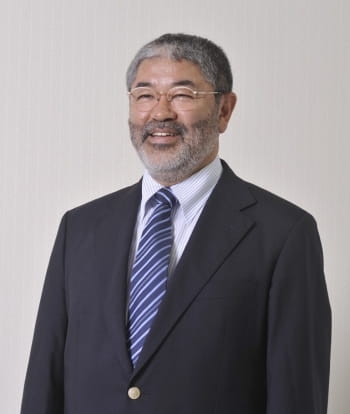Regional Development Center
Establishment and Goals of the Regional Development Center
On April 1, 2017, Nagano University transitioned from a private institution under the Nagano Gakuen School Corporation to a public university operated by Ueda City.Since becoming a public university, Nagano University has strengthened its collaboration with the local community by establishing the "Regional Development Center."This center serves as a new hub for contributing to regional development through education and research collaboration with industry, government, and the community. It plays a key role in building the "Regional Problem-Solving System" and the "Regional Talent Circulation System," which are essential components for the growth and success of public universities.
The Regional Development Center clarifies and organizes community contributions through education and research activities that focus on regional issues, which had previously emerged in a nascent form. The center acts as a coordinator, connecting local issues with the university's researchers and intellectual resources, integrating these with students' educational themes.
In advancing the resolution of regional challenges, it is important to create opportunities for community collaboration (community-based collaborative education), integrate various forms of knowledge and skills (specialized education), and teach sound judgment (liberal arts education). These three pillars form the foundation of our educational approach. Through the construction of the "Regional Problem-Solving System" and the "Regional Talent Circulation System," we aim to cultivate well-rounded professionals who will live and contribute to the region, helping address major local issues such as overcoming population decline, maintaining a stable and settled population, attracting young people, promoting industry, and developing talent. In doing so, we seek to enhance the region's overall strength.
Institute for Regional Symbiotic Welfare

Yasuhiro Kuroki
One of Nagano University's founding philosophies is "integrating academic theory with daily life through close ties with the local community." Based on this philosophy, our mission is to promote research and practical initiatives in "Regional Symbiotic Welfare," which focuses on living together in harmony within the community.
The university-affiliated research institute was established in 2005, marking an early recognition of the need for universities to contribute to local communities—well ahead of other institutions. Additionally, in 2021, we launched the only social welfare-focused graduate school in Nagano Prefecture. It's crucial to approach current challenges with a pioneering spirit, free from conventional thinking, and to create innovative solutions through forward-thinking and exploratory ideas.
One of the objectives of establishing the graduate school was to train highly skilled professionals. Graduate students, alongside faculty, are now able to engage in research as institute fellows. The institute has also formed strong connections with research at the graduate school, where students collaborate with local organizations and practitioners to conduct practical research. On our website, you can find details of the institute's projects, as well as our primary research achievements, including the publication of the Nagano University Journal of Regional Symbiotic Welfare and information about lectures and training programs we have conducted.
To further strengthen the functions and role of the institute, we have transitioned from a traditional university-affiliated institute to one housed within the Regional Development Center. Moving forward, we will continue to promote collaborative research with municipalities, businesses, and organizations, and actively engage in joint research and projects with local agencies and groups, as well as host research conferences and symposiums. If you have any collaborative projects in mind, please feel free to reach out and utilize the resources of the institute.
Introduction to the Research Institute
Anticipating the growing need for universities to contribute to local communities, Nagano University established the Institute for Regional Symbiotic Welfare in 2005. Since then, the institute has actively worked to promote community contribution in response to the needs of local society.
In 2021, we launched the only social welfare-focused graduate school in the prefecture, the Graduate School of Comprehensive Welfare Studies. As part of this effort, the Institute for Regional Symbiotic Welfare was reorganized under the Regional Development Center at Nagano University, allowing for more effective and integrated research and activities related to regional symbiotic welfare.
Starting in 2022, we have appointed faculty members from the Faculty of Social Welfare and the Graduate School of Comprehensive Welfare Studies as research fellows. Additionally, we have created a system that allows researchers from both inside and outside the university to participate as fellows and guest researchers. Graduate students can also join as research fellows, enabling them to engage in research.
Together, our team of researchers is committed to exploring the concept of "symbiosis" from diverse, multifaceted perspectives within the community. We aim to share our research and practical outcomes with local society and promote discussions through various projects.
- Promoting joint research with municipalities, companies, and organizations.
- Advancing collaborative research and partnership projects with local agencies and groups.
- Hosting research meetings, symposia, and other events related to regional symbiotic welfare.
- Publishing research journals, annual reports, and other academic publications.
- Engaging in research, consultation, and collaborative projects to promote regional symbiotic welfare.
- Carrying out other initiatives necessary to achieve the goals of the institute.